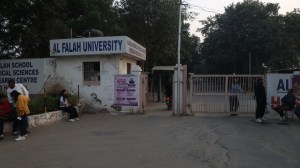Open secrets
In March 2003, 50 MPs, from parties cutting across the political spectrum, addressed an urgent letter to the then Deputy PM L.K. Advani. The...

In March 2003, 50 MPs, from parties cutting across the political spectrum, addressed an urgent letter to the then Deputy PM L.K. Advani. The immediate provocation was the case against Iftikar Geelani under the Official Secrets Act that had just turned out to be no case at all. The signatories to the letter were concerned at the ordeal of Geelani, chief of bureau of Kashmir Times, incarcerated for seven months, all bail pleas turned down, on charges of possessing documents very much in the public domain. But their concern encompassed all those other cases as well, in which citizens, less famous than Geelani had become, are deprived of their rights and their freedoms by the state through an 8216;8216;outdated8217;8217; and 8216;8216;draconian8217;8217; piece of legislation enacted in 1923. That concern has lost none of its urgency two years later. As the Right to Information Act is honed and extended in public debate, the OSA seems even more a bizarre relic. It looks worse than that.
The cases filed against this paper and two Gujarati papers by the Gujarat police are proof, if more was needed, that the OSA remains the pet instrument of the paranoid state. A state that seeks to gag and intimidate the press because it has dirty secrets to hide. Why should the conversation between a ganglord and a former Porbandar SP 8212; the Express ran a report alongwith transcripts of the exchange 8212; be treated as an official secret? Who decides that it is one? On what criteria? For many years now, these questions have been gathering around cases that have ranged from the grotesque to the absurd. As this paper reported, the number of OSA cases in which the evidence just refuses to stand up in court is swelling. We need to urgently debate whether in a climate in which we cannot depend upon the wisdom of the state to use the Act sparingly, or only in matters that relate to highly sensitive information, as defined by some rigorous criteria, do we need an OSA at all?
The argument has been made that what the OSA needs is a major amendment, especially of the loose and sweeping Section 5. Well, let it be amended soon. Else, the OSA will continue to be used by governments, such as the one in Gujarat, to suppress information, and worse, to do damage to the spirit of a free press.
- 01
- 02
- 03
- 04
- 05






























